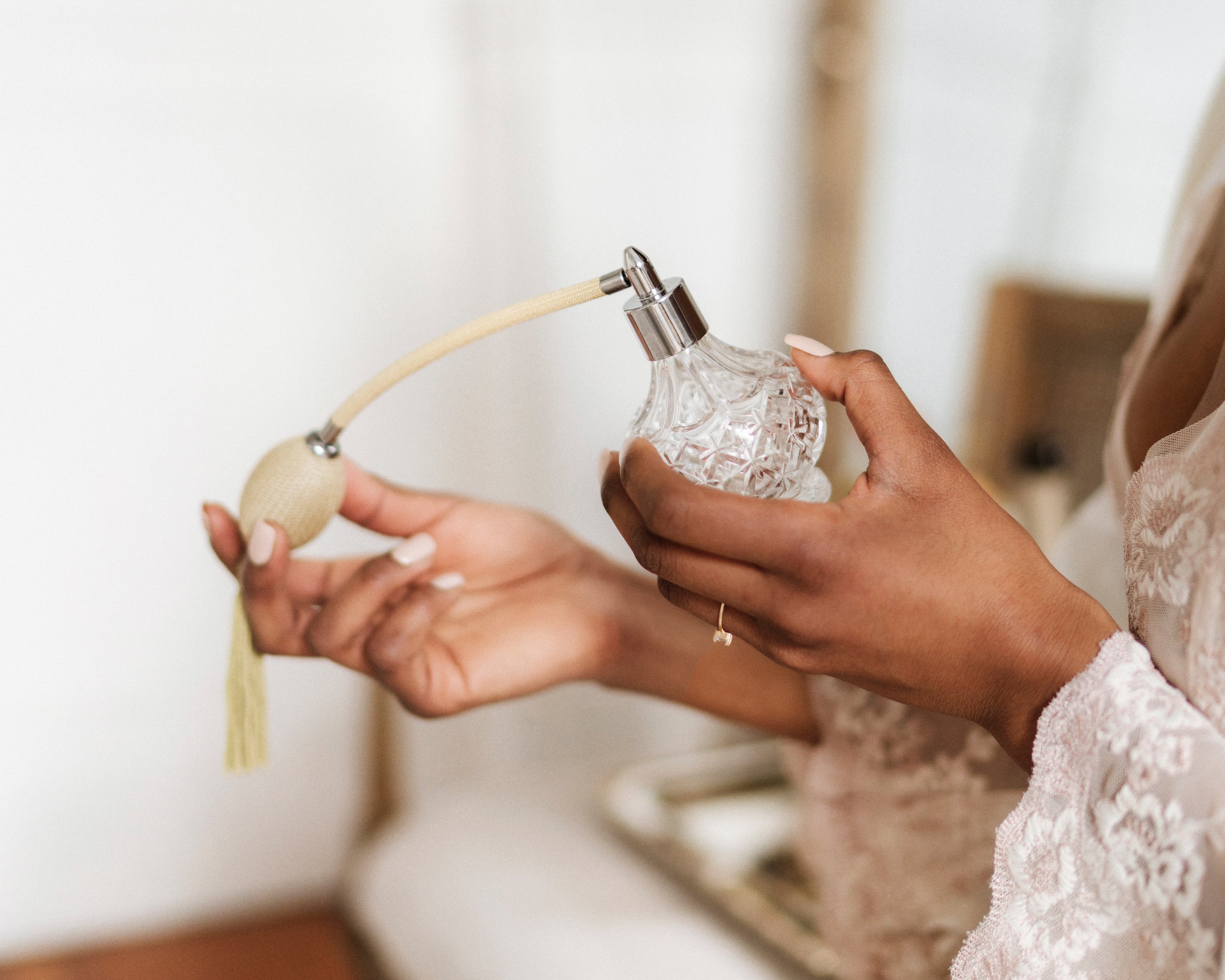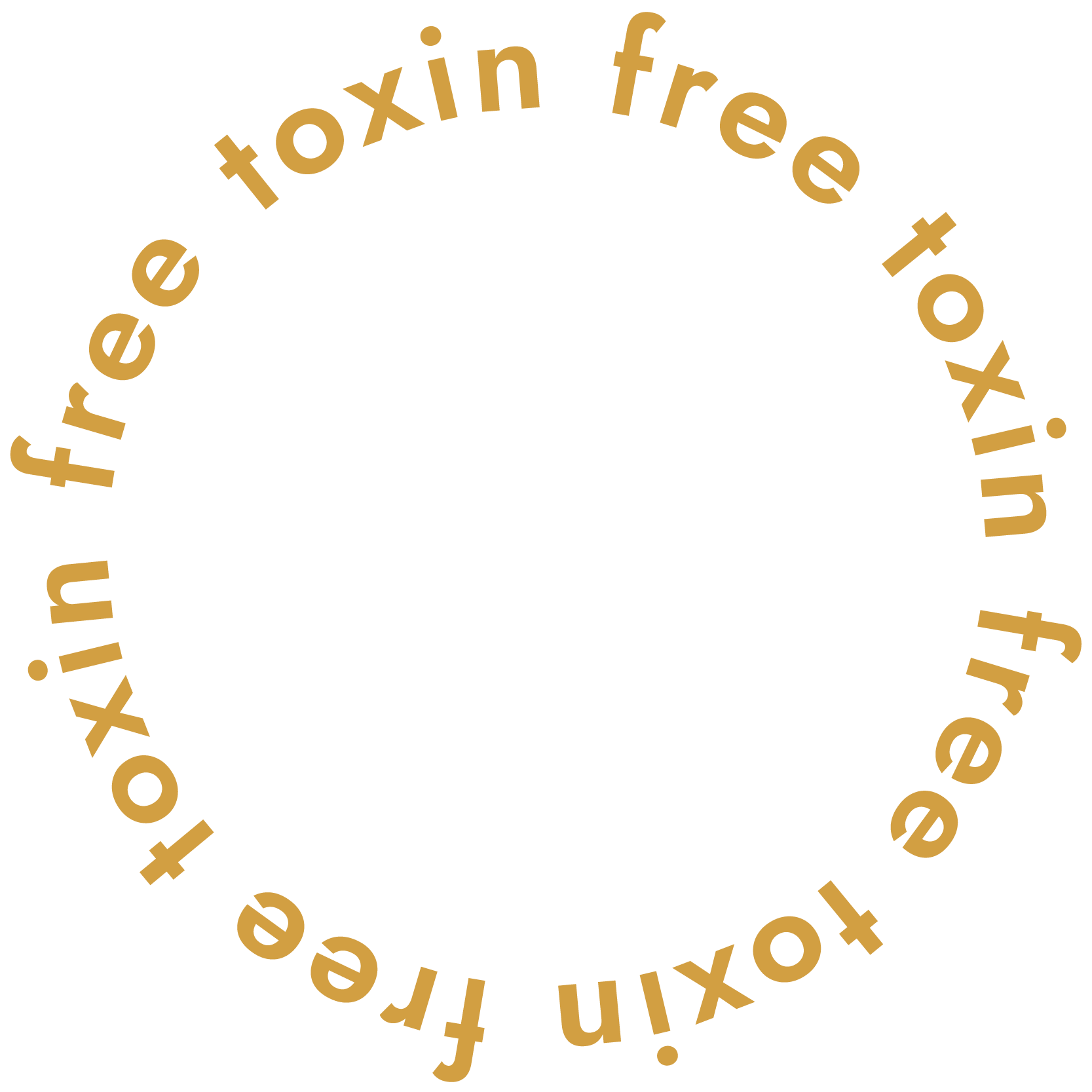Apple Podcasts | Spotify
One of the most common questions I get is, “How do I choose toxin-free fragrances?” They’re seeing a lot of different terms like “safe synthetics”, “naturally derived”, “no parabens”, and “no phthalates”. But then the word “fragrance” shows up. Well, what does that mean?
I’m going to make this as uncomplicated as possible for you. As I started prepping for this episode, I realized this topic is pretty broad and needs a few episodes to talk about all the intricacies. That’s why this is part one of a three-part series!
In this episode, I’ll talk about what you should look for in safe synthetic perfumes and colognes. Parts two and three coming soon!
Synthetic Fragrance Ingredients
Let me start by saying that just because an ingredient is synthetic doesn’t automatically mean it’s toxic or harmful. The same is true on the flip side. Just because an ingredient is natural or plant-based doesn’t mean it’s good. Some plant-based fragrances can be allergenic and some synthetic fragrances can be less allergenic for people. It’s not a matter of good and bad; it’s a matter of pros and cons when I’m talking about synthetic ingredients and fragrances.
What’s the difference between conventional synthetic fragrance and safe synthetic ingredients? Toxic synthetic ingredients includes anything that is a chemical that has hazardous properties or has a propensity to accumulate in our tissue, fat, or somewhere else. A good example is diethyl phthalate. It’s a known endocrine disruptor.
Ketones are synthetic fragrance ingredients that will also concentrate in human fat and tissue.
Legal Standards for Fragrances
The International Fragrance Association is a self-policing body that gives safety standards for perfumers globally. Companies can voluntarily be a member and meet the standards. Unfortunately, those standards do include some of the ingredients I mentioned. Because a fragrance is not required to be disclosed ingredient by ingredient, you don’t know what is in that fragrance. It could contain a bunch of those different ingredients, and you would never know.
Safe Synthetic Ingredients
There are no standard rules in the industry or a clear definition. To me, safe synthetics are ingredients that:
-
Aren’t known to cause any endocrine disruption
-
Aren’t carcinogenic
-
Aren’t mutagenic
-
Don’t compound and accumulate in your tissues
-
Not known to have any toxic effects
There are a lot of synthetic ingredients out there that are known to not be toxic at all. I think a lot of people have a hard time wrapping their heads around that something synthetically made might be fine.
Let’s take synthetic citrus as an example. If you were to use a natural citrus oil, some people with sensitive skin can have a reaction to it that can cause itching, burning, or other issues. But if you use a synthetic form of certain citrus oils, they’re gentler on the skin than a natural citrus oil. It’s a way for a company to make a perfume for somebody that may be more sensitive to the natural counterpart to it, and there’s nothing toxic with the synthetic version of it.
Pros and Cons of Synthetic and Natural Fragrance Ingredients
Strength of the Smell
When using a synthetic property, you get a stronger scent. If you want a fragrance with a stronger scent, you’ll have to use some kind of synthetics. Natural ingredients will be more light and airy. I wear essential oils as perfume all the time and I love the light smell of the aroma.
Reliability of the Scent
When you’re talking about natural products, you get the scents from plants, whether you extract them or soak them in oil. However, every crop is different, and every year is different. Every time you pull plants out of the ground and distill them, they smell different. You’re not going to get that uniformity each time with natural plant-based ingredients.
I love this about natural ingredients. I have my favorite scents, but I’m excited every time I replenish my supply to experience a slightly different scent. I appreciate the complexity of nature and what Mother Nature gives us. I don’t need it to smell the same all the time. I also tend to want a much lighter smell.
Environmental Cost
If everybody in the United States today decided to only buy plant-based fragrances, that would be a massive environmental catastrophe, in my opinion. It takes a lot of plants to distill to create a very small amount of essential oil. That’s why I’m picky about where I get my essential oils from. I only use Young Living essential oils (code SHAREYL for 10% off!) because they instituted regenerative agriculture principles. Every essential oil bottle that comes from them, you’re planting more plants than what you’re taking away.
Trying to trace sources and know where companies are getting those essential oils from is very difficult. This is a really good argument for being okay with using safe synthetics in perfume. We don’t have the right amount of natural resources to sustain everyone using plant-based ingredients 100%.
Lack of Data on Toxic Ingredients
While we have this list of ingredients that we know are toxic, like diethyl phthalate, there is a lot we don’t fully understand the effects they can have on us. There are over 4,000 fragrance ingredients on the approved list to use to create perfumes. Only about 2,000 of them have been researched heavily as far as what their health impacts are. That’s the problem with synthetic ingredients.
That was a lot of information on synthetic and natural ingredients in your cologne and perfumes! I hope you’re excited about the next episodes because they’re going to be good! I’ll teach you how to read labels to know if you should be concerned. Then, in part 3, we’ll chat about fragrance infertility. If you’re ready to ditch the toxic fragrances in your home and shop clean, check out my fragrance shopping guide.
Related Episodes
Episode 1: What the F*ck is an Endocrine Disruptor, Anyway?
Episode 2: The Fragrance Dilemma: How an Entire Industry Hijacked Your Hormones
Episode 34: From Nurse to Aromatherapist: The Science of Essential Oils, Explained with Holly Brandenberger
IF YOU ENJOYED THIS WEEK’S EPISODE, PLEASE:
- Leave a positive review or rating wherever you listen
- Shop toxin-free products on my Toxin Free Shopping Guide
- Download your free Tossing the Toxins Guide
- Post a screenshot, what you loved, and tag me on Instagram @wendy_toxinfreeish
- Want to ask me a question to get answered on the podcast? Leave me a voice message here.



+ show Comments
- Hide Comments